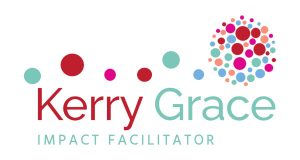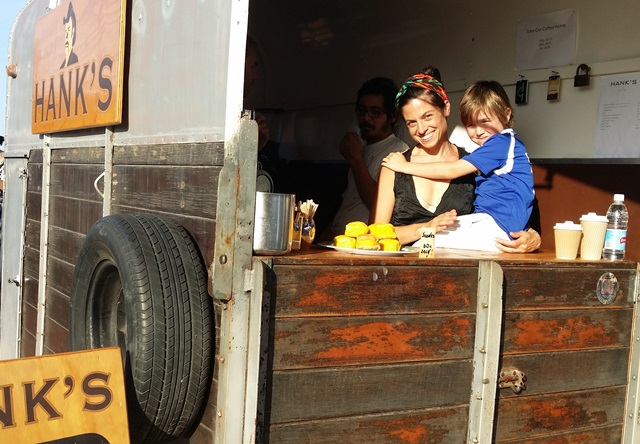There’s a lot of good to be gained via giving your time and resources in your community.
Some people give because it’s how they are built – they are compelled to. You’ll find these people sharing from their garden, lending a hand to neighbours, giving frontline workers coffees and selling raffle tickets. You won’t usually see these folks willingly sharing their giving accolades on Facebook – they just get on with it as a natural part of life.
Others do their ‘good’ for the kudos, the title, the votes, the photo opportunity, the ticket through the pearly gates… What they do on social media is their own business, and notably different to the latter folks.
A friend of mine tells me “some are of service, some are of self”. And when you’ve been around the traps for a while the distinction between the two motivations becomes pretty obvious even if some degree of grey area remains. After all, we are mere mortals, not Jesus.
Personally, I don’t mind either of the abovementioned motivations so much – when they are boiled down at least somebody got something good from the transaction.
The type of delivery of good that does bother me to some degree though is that delivered by what is fondly known as do-gooders.
A do-gooder, in case you aren’t already aware is defined by Oxford Languages as;
“a well-meaning but unrealistic or interfering philanthropist or reformer”
Or
In my experience they are usually observed via an eye roll, a noticable tsk or a hearty whack of let’s ride this pony for all it’s worth until it falls over.
I’ve seen millions of dollars injected into small communities in the guise of good. Sometimes the good sticks, but sadly – more often it does not. Over time there are two things I’ve come to understand…
- No individual, family, group nor community will ever change without a self-determined agency to do so. and;
- The people in our more marginalised communities can sniff out a do-gooder 100 miles off and while everyone fundamentally wants the best if that do-gooder is not prepared to set some fundamental challenges, to listen (actually listen) and to put their righteous mantle of change down and let the community decide… Good luck with that.
Do-gooders are often found lurking around poverty, disaster and marginalised communities. They fundraise, they gee up willing pollies, they nod their heads in hypnotic understanding and they ‘sit’ with the people.
But can they see beyond their self-entitled position in society? Not likely.
You see, the lens through which true do-gooders (as opposed to do-ers of good) see the world is permanently fixated with it’s origin. Our greatest challenge as people who choose to do good is shift to the other side of the lens and draw its focus on the WHY – why do we want to help? – the WHO – who are we really helping? and the WHAT – What do those we are thrusting our great intentions upon really want?
I am a reformed do-gooder. Just saying… However, with a whole lot of moral guidance, numerous loud knocks and the making of many, many mistakes I’ve come to understand the following points which I consider essential in the doing of good;
- Sort out your own crap first – You’d be surprised how many people who work in the community sector are floundering in their own muck (despite their dedication and excellence in their roles). These folks embrace your stuff as it’s a lovely distraction (because it is) and mostly this is a synergy that works unusually well – well, until it doesn’t. If you’re going to thrust yourself upon a community please take some time to look in the mirror first.
- Fill your cup – I’ve heard this so often that it almost annoys me. However… I must admit it’s true. If you want to serve your community make sure you are serving from a full cup. And on those days you just can’t quite fill it up – sit back. The more times you do this, the more people will respect you for looking after you – and for serving them when you have good stuff to give.
- Sort out your top 5 – you will only ever be as influential, loved, compassionate, successful as the top 5 people you spend your time with. Make them count.
- Anoint an advisory panel – Be it formal or informal get yourself a panel of angels who are prepared to tell you the truth – as it stands – no matter freaking what. Give them permission to tell you WTF as often as they please.
- Ask. Not everyone is equipped with the ability to speak their needs. There’s nothing quite as empowering as a well-placed question. Get good, really good with your questions of others.
- Listen. The person, couple, family, community – whomever it is that you’re working with (trying to rescue) is dying to tell you about what support they really, really want. Just listen and you’ll find out.
- Understand your motivation? Often when people feel called to help it’s not a devine intervention (OK, sometimes it is) – Sometimes, our need to help rests in our need to ignore our own stuff (return to point 1)
- Stay positive. If you choose to do good in your community I can tell you with hand on heart that you are going to get your butt kicked. (refer to Brene Brown).
- Above all Stay positive and avoid becoming bitter at all costs. If doing good has tapped you on your shoulder I’m terribly sorry to inform you that it’s as addictive as it is necessary. Good luck with that.
- Be there. Let people know that you’re there and just be there. Someone bitching on their socials? Drop them a PM to check in. Bake the muffins, buy the coffee, make the phone call. Let people know you care by reaching out.
Above all folks, don’t let your halo choke you – if you are compelled to do good make sure you really and truly have the personal capacity to do so. And (above all) ensure you’re prepared to receive in return.


